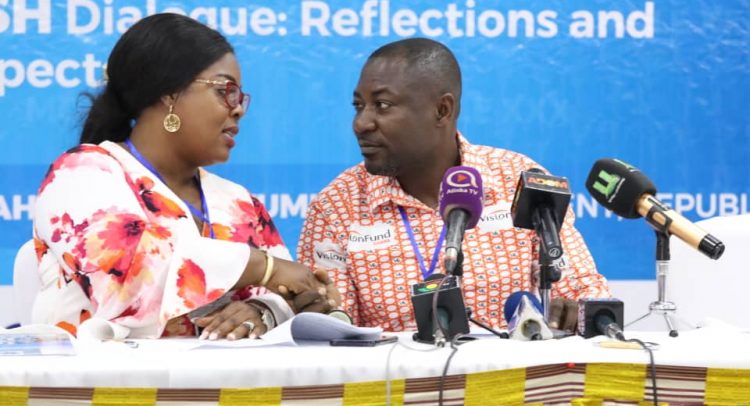The Environmental Service Providers Association (ESPA) and the Coalition of NGO’s in Water and Sanitation (Coniwas) has demanded of government to immediately address the low charges allotted to service providers in managing solid waste.
Ghana charges an average cost of less than $10 in managing a tonne of municipal solid waste.
This charge is comparatively lower than the World Bank recommended fee of $30 for managing a tonne of waste.
The two organizations in a joint press statement demanded of government to address this cost deficit for sustainable waste management.
The Vice President of Coniwas, Atta Arhin who delivered the press statement at the 30th MOLE XXX Conference in Ho in the Volta region indicated that this low financial allocation to the Water and Sanitation Sector is abysmally low and cannot sustain the sector.

He noted that “Investment in environmental sanitation has been abysmally low.
Budgetary allocation to the Ministry has declined from GH¢ 255 million in 2017 (which was woefully inadequate) to GH¢ 246 million 2019
He said the inadequate financing of solid waste management coupled with high cost of operations and unrealistic tariffs further constrain the capacity of service providers to deliver the services effectively especially to the poor.
Mr. Arhin said despite the low financial allocation, delays in payment of service providers by government, high taxes on imported equipment and increasing cost of fuel is driving many service providers out of the business.
He urged government to support existing waste treatment facilities with financial incentives including, management fees, signing off-takers agreement and provide subsidies to sustainably manage these infrastructures.
The Mole Conference which has been held consistently for the past 30 years brings together stakeholders in the water and sanitation sector to deliberate on Ghana’s challenges and proffer suggestions that help shape policy.
This year’s conference was under the theme “30 years of Multi-Stakeholder WASH Dialogue: Reflections and Prospects”.
BY Melvin Tarlue


